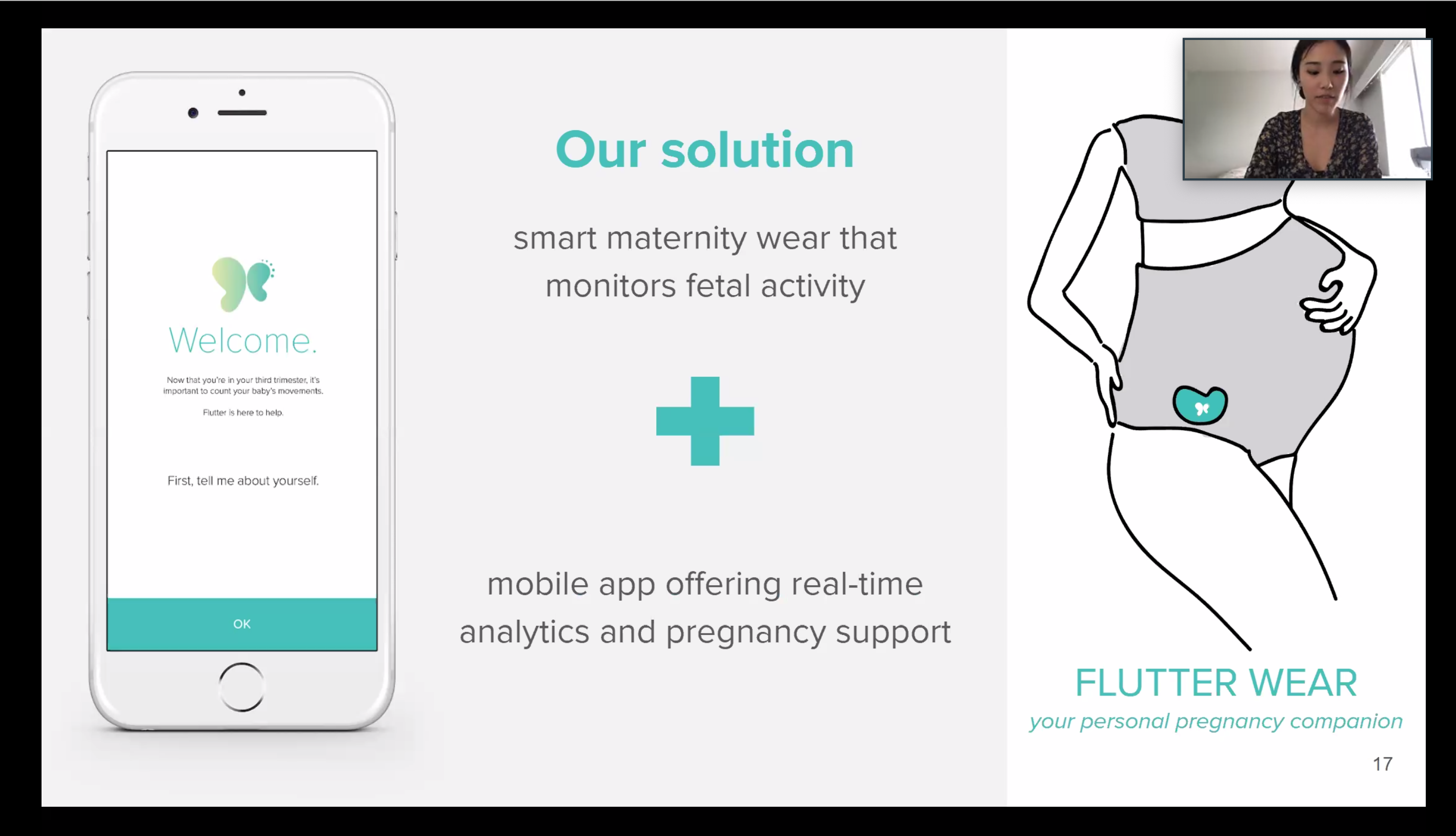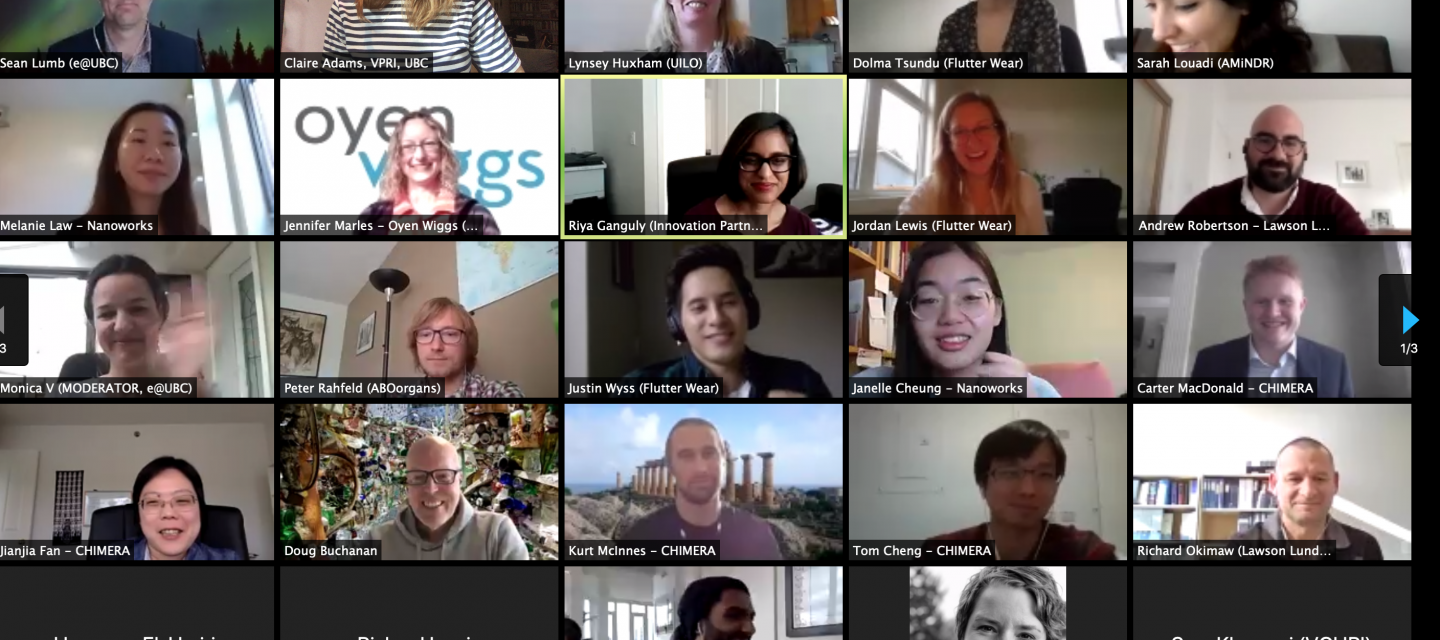Revolutionizing the study of traumatic brain injury, improving the experience of expectant mothers, and helping neurodegenerative researchers optimize their time were the winning venture ideas in the first ever Innovation UBC Start-Up Idea Competition for the life sciences.
The competition concluded on Thursday April 30 with a virtual pitch competition held over Zoom where six teams pitched their ideas based on UBC research to an expert panel of judges and a live audience. The pitch marked the culmination of several months of work by the teams, who had been participating in the Innovation UBC Start-Up Idea Competition since January 2020. The competition began with a series of weekly educational sessions on various topics related to venture building led by expert facilitators. Following the educational portion of the competition, teams were invited to submit a written proposal of their life-sciences venture idea and then to progress to a final pitch competition.
Due to COVID-19 the original plan for an in-person pitch event was no longer possible, but the Innovation UBC team worked quickly to transition to an online format, resulting in Thursday’s virtual pitch event which drew in a highly engaged audience featuring several key members of BC’s life sciences industry. The panel of judges reviewing the pitches were faced with a difficult choice between six excellent venture presentations, but in the end the winners were announced as:
- First place: CHIMERA
Traumatic brain injury (TBI) affects over 69 million people worldwide every year and can be caused by sports-related injuries, car crashes, or other traumatic events. TBI can range in severity from a mild concussion to a coma or worse, with 34 percent of all traumatic deaths being caused by head injuries. Despite the multi-billion market for treating TBI, pharmaceutical companies aren’t investing in research due to the lack of a model they can trust. CHIMERA is a medical research device aiming to revolutionize the way in which we study traumatic brain injury. Unlike competing models, CHIMERA allows for free head movement during impact to create more realistic injury profiles.

Carter MacDonald from CHIMERA, who presented the team's pitch, said: "Taking part in the competition was a really great experience for us. We learned a lot from the workshops and appreciated being able to get feedback from experts about the commercialization process. The transition to online was handled really smoothly, and the pitch event was a fantastic opportunity to present to the judges and live audience. We are excited to take CHIMERA forward and are planning our next steps towards commercialization."
- Second place: Flutter Wear
Flutter Wear is a holistic pregnancy companion aimed at enabling and encouraging mothers to take charge of their health, and ensure their expected baby’s well-being. By combining wearable technology with a smartphone application, the company’s mission is to promote a positive and informed pregnancy experience for every mother. The non-invasive technology integrates a flexible and stretchable sensor into maternity wear to safely and comfortably measure fetal movements. The app learns from the user’s data to establish a personal baseline of activity, and inform the diagnosis, evaluation, and management of health complications indicated by decreased fetal movements. The innovation will alleviate maternal anxiety, improve fetal outcomes, and facilitate personalized maternity care.
Flutter Wear were also the winners of the pitch event's audience vote.

- Third place: AMiNDR
A Month in Neurodegenerative Disease Research (AMiNDR) is a podcast that will summarize and present the latest publications in either Alzheimer’s disease, Parkinson’s disease, Amyotrophic Lateral Sclerosis, and Huntington’s disease. During each episode, the latest publications in each topic for the past month will be summarized and grouped into themes. AMiNDR offers a regular summary unbiased to the impact of the findings and disseminates information in an auditory format, which allows our following to optimize their time. In the long term, we plan to expand our platform to include other diseases or topics.

The winning teams will receive cash prizes, provisional patent services provided by the University Industry Liaison Office and start-up legal services provided by Lawson Lundell LLP.
The other three teams who pitched were ABOorgans who pitched their technology to simplify the matching process in organ transplantation, Beacontip who pitched a side-viewing endoscopic catheter to detect clogged heart veins in real-time, and Nanoworks who pitched a targeted drug delivery therapeutic for cancer treatment.
The competition winners were announced at the virtual pitch event by UBC’s Vice-President of Research & Innovation Gail Murphy, who commented: “Congratulations to the very deserving winners of our first Innovation UBC start-up idea competition, who continue UBC’s impressive track record of translating research excellence into tangible social and economic impacts. Our panel of judges were faced with an incredibly difficult decision due to the exceptionally high standard of pitches presented by all of the participating teams. I look forward to seeing what comes next for this inspiring group of emerging UBC innovators.”
The competition was delivered by the University Industry Liaison Office (UILO), entrepreneurship@UBC and the Innovation Partnerships team, who along with UBC’s Knowledge Exchange Unit, represent Innovation UBC. Innovation UBC supports the transformation of UBC research into new technologies, services, treatments and policies through channels such as commercialization, venture building or forming new partnerships with industry, government, non-profit or community groups.
